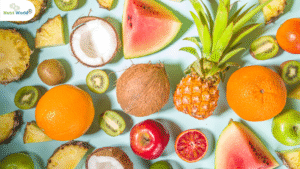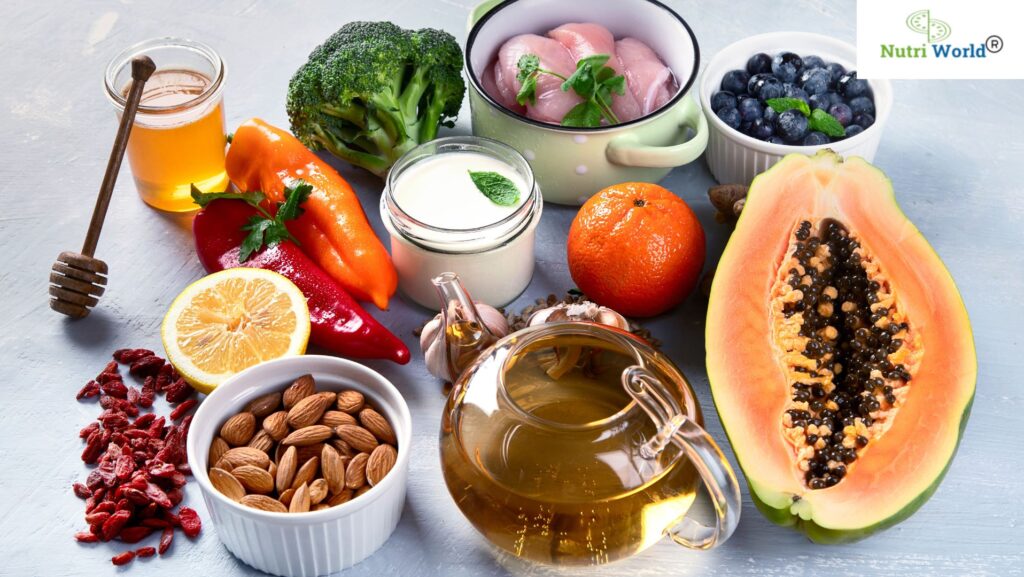By Nutriworld | Dt. Dipanwita Saha
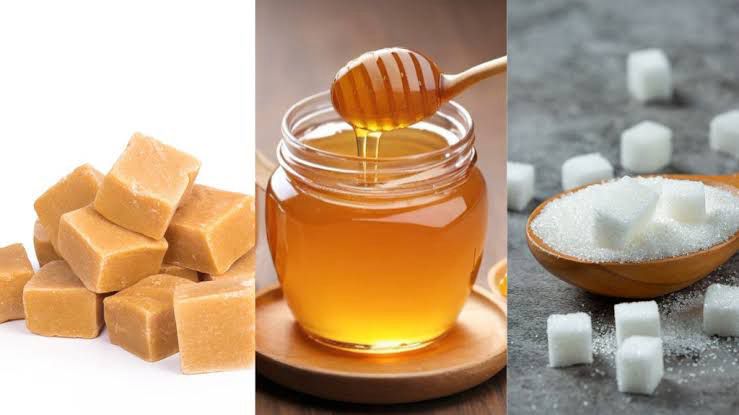
Sweeteners are an essential part of our daily diet, whether in tea, desserts, or packaged foods. Among the most commonly used natural sweeteners are honey, sugar, and jaggery. While all three serve the same purpose—adding sweetness—they differ in their nutritional profile, health benefits, and impact on the body.
Many health-conscious individuals are shifting from refined sugar to alternatives like honey and jaggery, believing them to be healthier. But is honey truly the best choice? How do sugar and jaggery compare in terms of nutrition and health effects?
As a nutritionist, I will break down the differences between these three sweeteners to help you make an informed choice.
What Are Honey, Sugar, and Jaggery?
1. Honey
Honey is a natural sweetener made by bees from the nectar of flowers. It is composed mainly of fructose and glucose, along with trace amounts of vitamins, minerals, and antioxidants. Honey has been used in traditional medicine for centuries due to its antibacterial, anti-inflammatory, and immune-boosting properties.
Types of Honey:
- Raw honey (unprocessed, retaining all nutrients)
- Pasteurized honey (heated, reducing nutritional value)
- Flavored honey (often processed and mixed with additives)
2. Sugar
Refined sugar is made from sugarcane or sugar beets and consists purely of sucrose. It undergoes heavy processing, which removes any trace nutrients, leaving behind only empty calories. Sugar is widely used in processed foods, desserts, and beverages, but its excessive consumption is linked to various health issues, including obesity, diabetes, and metabolic disorders.
Types of Sugar:
- White sugar (table sugar) – Highly refined and commonly used.
- Brown sugar – Contains some molasses, giving it a slightly higher mineral content.
- Coconut sugar – Less processed, with some micronutrients retained.
3. Jaggery
Jaggery is a traditional, unrefined sugar made by boiling sugarcane juice or palm sap. It retains some minerals like iron, calcium, and magnesium, making it a slightly better alternative to refined sugar. Jaggery is often used in Indian and Southeast Asian cuisine as a natural sweetener.
Types of Jaggery:
- Sugarcane jaggery – Most common and widely
- Palm jaggery – Made from date or palm sap, richer in
Comparing the Nutritional Profiles
All values are 100 per gram :-
| Nutrient | Honey | Sugar | Jaggery |
| Calories | 319 Kcal | 398 Kcal | 383 Kcal |
| Carbohydrate | 79.5g | 99.4 | 95.0 |
| Protein | 0.3 | 0.1 | 0.4 |
| Iron | 0.696 | 0.155 | 2.64mg |
| Calcium | 5 mg | 12mg | 12mg |
| Antioxidants | yes | No | yes |
Key Takeaways
✔ Sugar provides the highest calorie content with no nutritional value (empty calories).
✔ Honey and jaggery contain small amounts of minerals and antioxidants, making them nutritionally superior to sugar.
✔ Jaggery has significantly higher iron and calcium content, which may benefit those with anemia or weak bones.
Health Benefits of Honey, Sugar, and Jaggery
1. Health Benefits of Honey
✔ Rich in Antioxidants – Protects against oxidative stress and inflammation.
✔ Boosts Immunity – Has antibacterial and antimicrobial properties.
✔ Supports Digestion – Helps with gut health and digestion.
✔ Natural Energy Source – Provides a steady energy release.
⚠ Caution: Excessive honey intake can still contribute to weight gain and high blood sugar levels.
2. Health Risks of Sugar
❌ Leads to Weight Gain – Empty calories contribute to obesity.
❌ Increases Risk of Diabetes – Causes insulin resistance over time.
❌ Harms Heart Health – Excess sugar is linked to high cholesterol and triglycerides.
❌ Affects Skin Health – Accelerates aging and increases acne breakouts.
➡ Verdict: Refined sugar offers no health benefits and should be minimized in the diet.
3. Health Benefits of Jaggery
✔ Rich in Minerals – Provides iron, magnesium, and calcium.
✔ Supports Digestion – Acts as a natural detoxifier for the liver.
✔ Improves Respiratory Health – Helps with cough and cold relief.
✔ Boosts Energy – Releases energy slowly, preventing crashes.
⚠ Caution: Jaggery still has a high sugar content, so portion control is essential.
Final Verdict: Is Honey Healthier Than Sugar or Jaggery?
Yes, honey is healthier than sugar and jaggery because of its antioxidants, lower glycemic index, and immune-boosting properties. However, jaggery is a better option for those needing iron and minerals.
Best Choice for Overall Health:
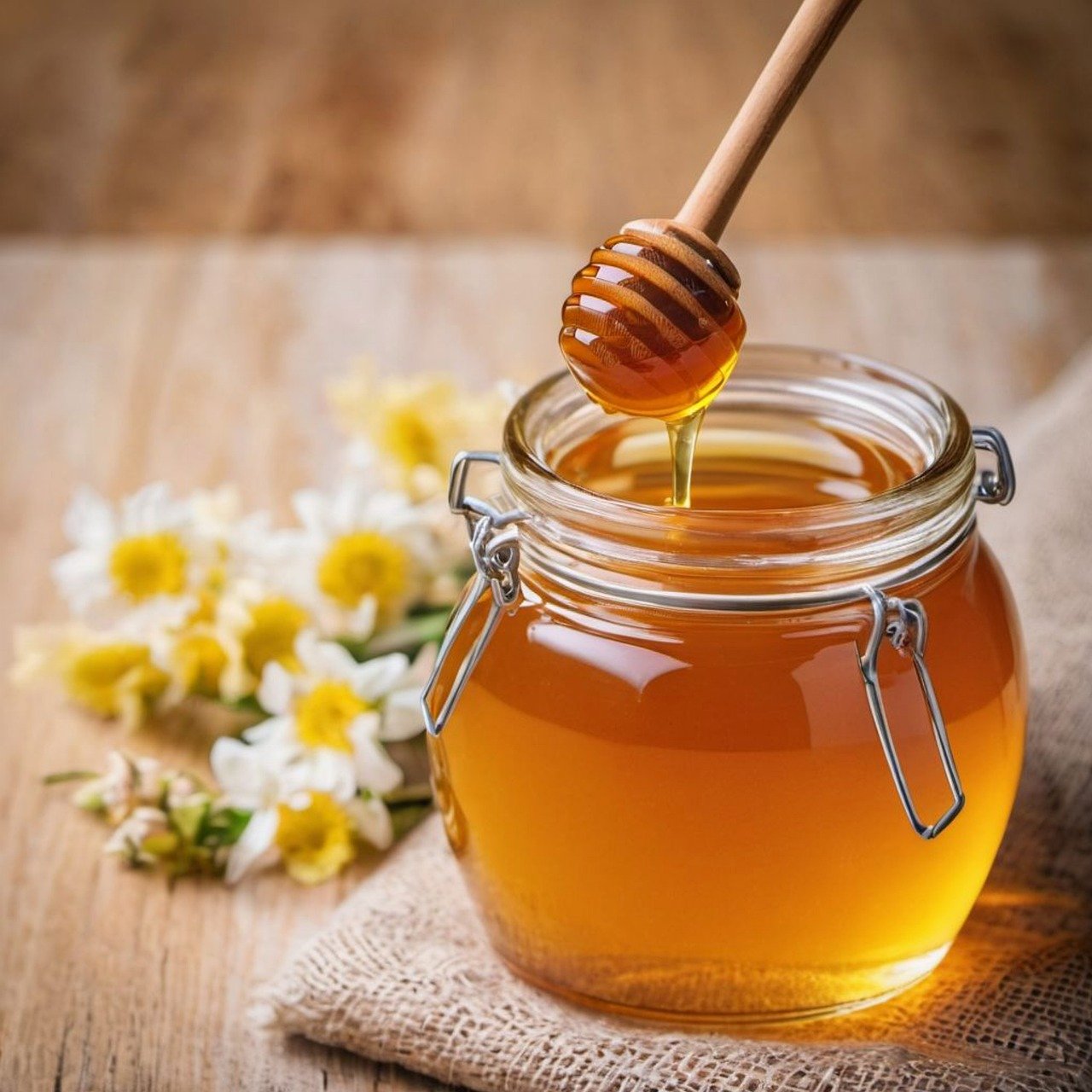
Raw Honey
Ideal for those looking for a natural, nutrient-rich sweetener.
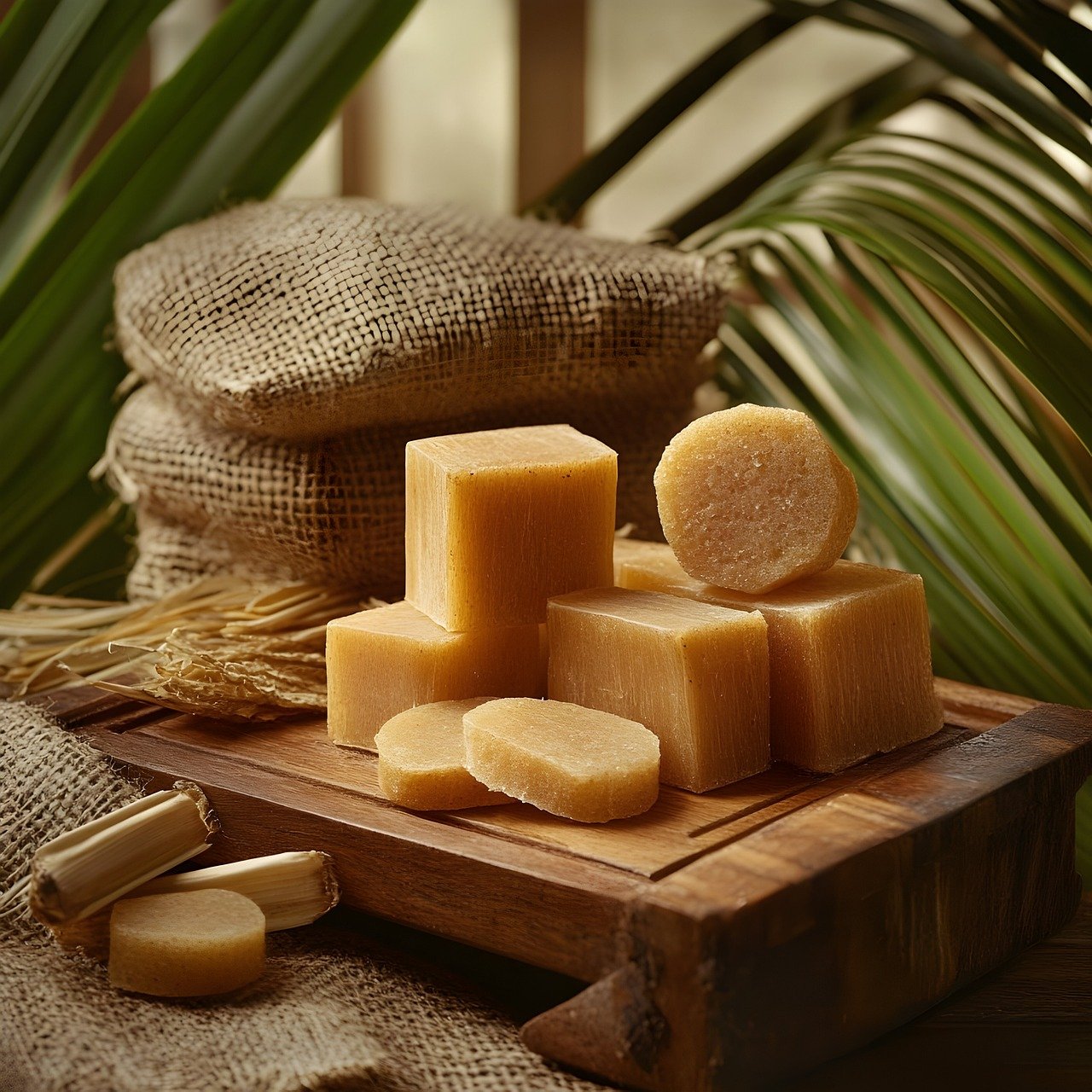
Jaggery
A good choice for those needing minerals and slow energy release.
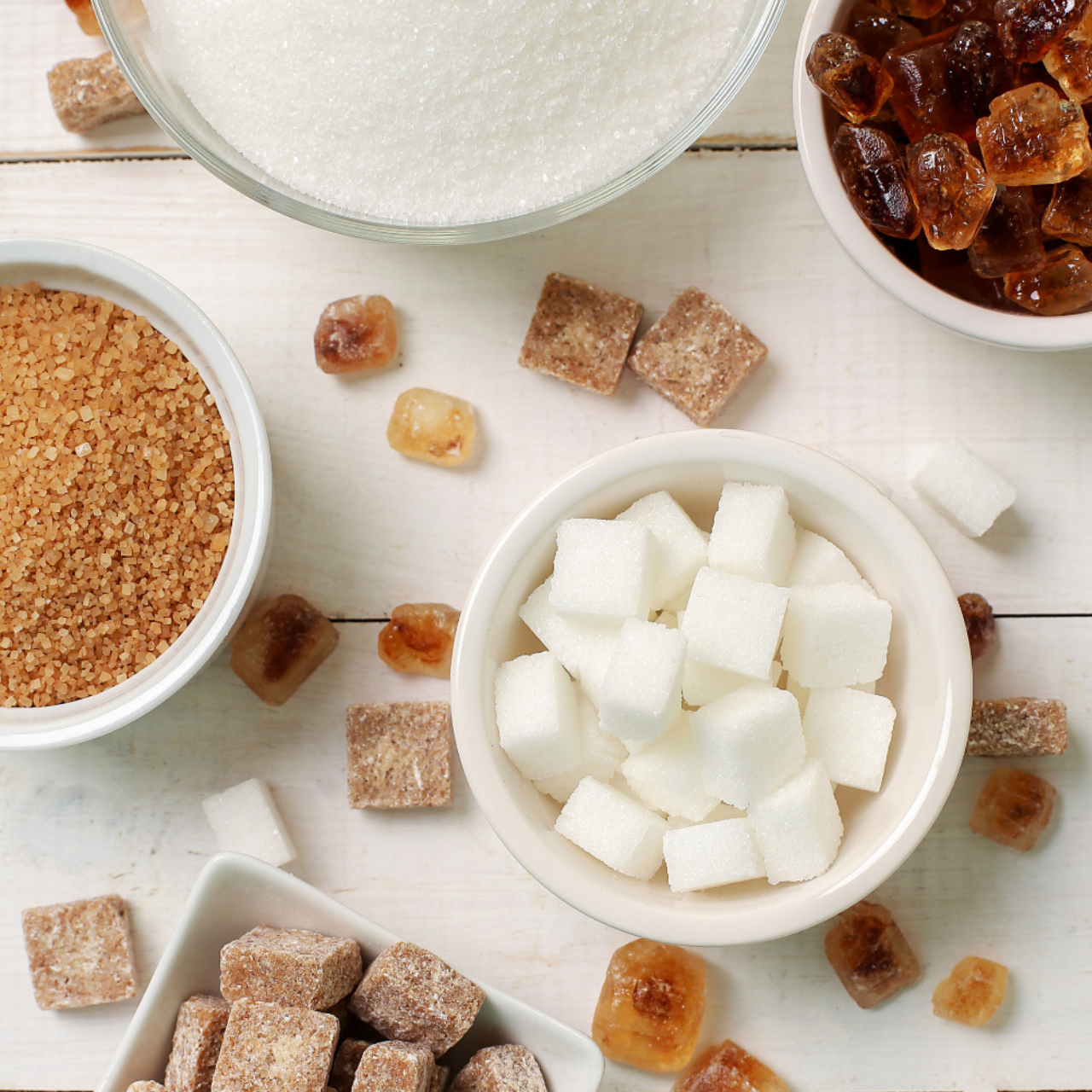
Refined Sugar
Should be avoided or minimized in the diet.
How to Use Them in a Healthy Diet
- Use honey to sweeten tea, drizzle over yogurt, or as a natural cough
- Replace sugar with jaggery in desserts and traditional
- Avoid processed sugar as much as possible, opting for whole, natural
Conclusion:
While all three sweeteners add flavor to our diets, honey and jaggery are nutritionally superior to sugar. Choosing the right sweetener depends on your health needs—honey for immunity and digestion, jaggery for iron and minerals, and refined sugar only in minimal amounts or avoided completely.
FAQ
1.Which is the healthiest option: sugar, honey, or jaggery?
Healthiest: Honey and jaggery are better choices than refined sugar because they contain some nutrients and antioxidants.
Least healthy: Refined sugar provides only empty calories and has no nutritional benefits.
However, all three contain high amounts of sugar, so they should be consumed in moderation.
2.Does honey raise blood sugar levels?
Yes, honey does raise blood sugar levels, but at a slower rate than refined sugar. It has a lower glycemic index (GI) than sugar, making it a slightly better option for diabetics—but it should still be consumed in moderation.
3.Can diabetics consume honey or jaggery instead of sugar?
❌ No sweetener is truly safe for diabetics because all contain natural sugars.
- Honey and jaggery have a lower GI than sugar but still impact blood
- If consumed, portion control is key—preferably under the guidance of a nutritionist or doctor.
4.Does honey have more calories than sugar?
Yes, honey is more calorie-dense per tablespoon because it is heavier and denser than sugar.
- 1 tablespoon honey = ~64 calories
- 1 tablespoon sugar = ~48 calorie
However, honey is sweeter than sugar, so you may need less of it to achieve the same level of sweetness.
5.Which sweetener is best for digestion?
✅ Honey is best for digestion as it contains enzymes and antibacterial properties that can help with gut health.
✅ Jaggery also supports digestion by acting as a natural detoxifier.
❌ Refined sugar provides no digestive benefits.

